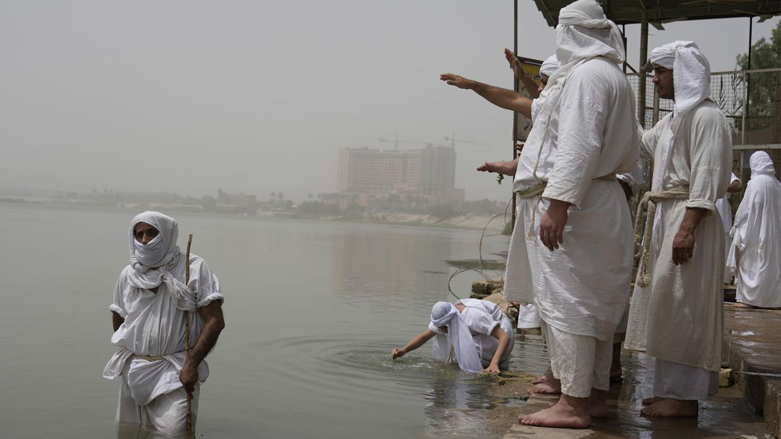PM Barzani congratulates Sabean-Mandaean on their new year

ERBIL (Kurdistan 24) – Kurdistan Region Prime Minister Masrour Barzani congratulated the Sabean-Mandaean religious minority in Iraq and the world on the occasion of their new year Saturday.
“With the advent of the Mandaean New Year, I extend my warmest congratulations and blessings to the Sabean-Mandaean sisters and brothers in Iraq and the world,” Prime Minister Barzani tweeted.
He wished the Mandaeans peace and tranquility and asked “the Almighty to restore this happy occasion to them and all humanity in an atmosphere full of coexistence, love, and tolerance.”
مع حلول رأس السنة المندائية، أتوجه بأحر التهاني والتبريكات إلى الأخوات والإخوة الصابئة المندائيين في العراق والعالم، متمنياً لهم السلام والطمأنينة، سائلاً المولى القدير أن يعيد هذه المناسبة السعيدة عليهم والإنسانية جمعاء في أجواء زاخرة بالتعايش والمحبة والتسامح.
— Masrour Barzani (@masrour_barzani) July 16, 2022
Kurdistan Region President Nechirvan Barzani also sent his greetings.
“I extend my best wishes and blessings to our Sabean-Mandaean brothers on the occasion of the Mandaean New Year, wishing them a happy new year and that it brings goodness and blessing to everyone, wishing to continue strengthening the feelings of brotherhood, love, and peace and to consolidate the principles of tolerance and coexistence among all components of the country” he tweeted.
“Happy new year.”
أتقدم بأجمل التهاني والتبريكات لأخوتنا الصابئة المندائيين بمناسبة حلول رأس السنة المندائية، راجيا لهم عيدا سعيدا وأن یعود على الجميع بالخير والبركة، متمنيا دوام وتعزيز مشاعر الأخوة والمحبة والسلام وترسيخ مباديء التسامح والتعايش بين جميع مكونات الوطن.
— Nechirvan Barzani (@IKRPresident) July 16, 2022
وكل عام وأنتم بخير.
On Saturday, members of the Sabean-Mandaean, a pre-Christian sect that follows the teachings of John the Baptist, performed their rituals in the Tigris River in Baghdad to mark their new year. They celebrate their new year with a five-day holiday.
The smallest ethnoreligious minority in Iraq, numbering less than 5,000, the Sabean-Mandaeans were historically concentrated in the southern Iraqi Basra, Dhi Qar, and Maysan provinces. However, during the past decade, a large number of them moved to Kurdistan Region to escape the violence in Iraq.
